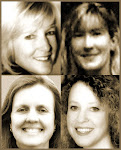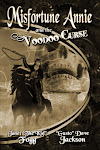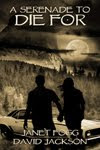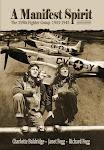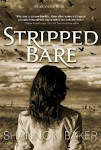Last month, when my father’s pneumonia/COPD took a turn for the worse, I flew to Connecticut. Alongside my brother and cousin, I was with him as he passed on as peacefully as one can with life-sustaining oxygen removed, morphine compassionately administered. Afterward, we faced the bittersweet removal of Dad’s things from his assisted-living efficiency at St. Mary's Home. His was a tiny place, but packed wall-to-wall with his last years’ lifestyle, outlook, and convictions. He was sharp to the end, so it was a surprise when we discovered he obsessively collected certain items. I reflected on who he was as I imagined the symbolism of each.
His Past Career: Office supplies, pens, paper clips and organizing boxes. Dad had been a successful manager of over 170 people. He knew his business inside-out, treated his employees well, was organized, efficient, and capable. Despite all his later troubles, he continued to keep well-filed records of his bills, payments, resumes, etc.
Vulnerability and Fear: Dad had a dozen depleted oxygen bottles, rentals he should have returned. Dad knew he was winding down. And we could hear it in his voice when he started to call us more often. The heavy green bottles stood there as reminders that smoking had sucked the life right out of him.
Prepare and Protect: White Towels that should have been returned to St. Mary’s laundry were everywhere. I doubt the white meant purity. St. Mary's only distributed white towels. In their terrycloth-soft way, they’d protected him. He’d wrapped them around his chair arms and back, cushioning them since he spent much of his time there, even while sleeping. Maybe he feared pressure sores. He’d draped more white towels over this oxygen bottles, collected them in his closet, tucked them beside furniture--emergency sop ups for his now-and-then incontinence. They were preparation and prevention, maybe even embarrassment.
Limited Time: Dad had little dime-store alarm clocks everywhere, as if he needed one visible from any spot he sat or stood. He hadn’t taken good care of himself, smoking so many years, at times drinking himself into homelessness, even threatening his own life. Miraculously his liver never suffered. But his lungs told him he lived on borrowed time.
Nostalgia: Calling to mind a teenage bedroom, magazine
cut-outs of beautiful women were taped to his walls. Maybe he wanted to be reminded of a time when
he was a handsome, charismatic, female magnet.
It was only because he was loved that St. Mary's turned a blind eye to
the half-clad display.
The athletic days: At least a dozen baseball caps hung on a wall: He was reminded of his athletic days. Growing older with a bad back was hard on him. He used to play baseball, ride horses, and golf.
Conscientious about the World: Cloth and canvas bags were everywhere. It seemed as if he’d shopped in many places and bought a $1 bag each trip. He must have set each aside and forgotten to take one with him when he went out shopping again. He could have asked for plastic but sacrificed what little he had to make the environmental choice.
Self-consciousness: One might argue that sucking on mints was a
practical thing to do given Dad’s lack of good teeth. But I felt the hundreds of packets of hard
candies and gummy chews—most not even opened—were my father’s way of reassuring
himself that he could pop some flavor and keep his breath fresh. He’d always been a good-smelling, clean,
well-dressed statesman. He still had
pride in his presentation despite having very few good teeth in his mouth.
Powerlessness: Dad was naturally fastidious, but he’d become
incapable, leaving dirty dishes strewn about and piled in the sink. The unused stove was covered with a
towel. Luckily St. Mary's Home served
meals.
Preserving
and Protecting:
Dad had tissues everywhere. Wads
shoved over half eaten dried cranberries in paper cups, apparently meant to
protect and preserve. Sometimes those
cups also had take-out plastic drink lids laid over them to further protect
munchies from drying out.
Dad’s
things had no monetary value, but they told the story of his last few years,
his reminiscences, what he regretted, what he cherished. -- InkPot
